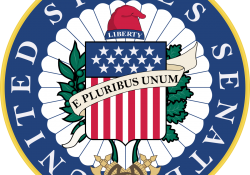Incentives
TAX CREDIT
(See Footnote 1 below)
FOR TESTING EXPENSES FOR
DRUGS FOR RARE DISEASES OR CONDITIONS
Introduction
Section 45C of the Internal Revenue Code of 1954 allows a credit against tax, up to 50 percent of certain clinical testing expenses related to the use of a drug for a rare disease or condition after it is designated as an orphan drug.
Continue Reading →
(Cite as Molly Redfield Ward, Notes on the 2004 to 2009 United States Food and Drug Administration Approval of New Molecular Entities (NMEs), KEI Research Note 2010:3) A PDF version of this document is available here. Notes on the 2004… Continue Reading →
February 22, 2010., Matthew Herper, “The World’s Most Expensive Drugs,” Forbes. Genzyme’s web page on the cost of treatment. Some data points on Fabrazyme prices. 2004 prices for Replagal 2001 prices for Cerezyme. Myozyme/Lumizyme A 2007 Canadian analysis of (50… Continue Reading →
Written submission U.S. Senate Committee on Health, Education, Labor, and Pensions (HELP) Hearing on Treating Rare and Neglected Pediatric Diseases: Promoting the Development of New Treatments and Cures, On the topic of Direct funding, subsidies and incentives for the development… Continue Reading →
Written submission U.S. Senate Committee on Health, Education, Labor, and Pensions (HELP) Hearing on Treating Rare and Neglected Pediatric Diseases: Promoting the Development of New Treatments and Cures On the topic of Transparency, cost benefit analysis and de-linkage of cost… Continue Reading →
When the Bayh-Dole Act was passed in 1980, it included a provision that identified 21 statutes over which the Act would take precedence. I have reordered them according to dates they appear to have been enacted, and provided some details of the referenced statutes.
35 U.S.C. 210 Precedence of chapter.
Continue Reading →
Copyright Limitations
2 U.S.C. 170 – American Television and Radio Archives
(c) Liability for copyright infringement by Librarian or any employee of Librarian.
Continue Reading →
On June 28, 2010, Knowledge Ecology International (KEI) and IQsensato are co-hosting a workshop on the Anti-Counterfeiting Trade Agreement (ACTA).
The Location of the meeting is the Maison des Associations, on Rue des Savoises 15, Geneva, in the Salle Gandhi.
Speakers
- Carlos Correa, University of Buenos Aires
- Erik Josefsson, Adviser, Greens/EFA-European Parliament
- James Love, Knowledge Ecology International (KEI)
Continue Reading →
